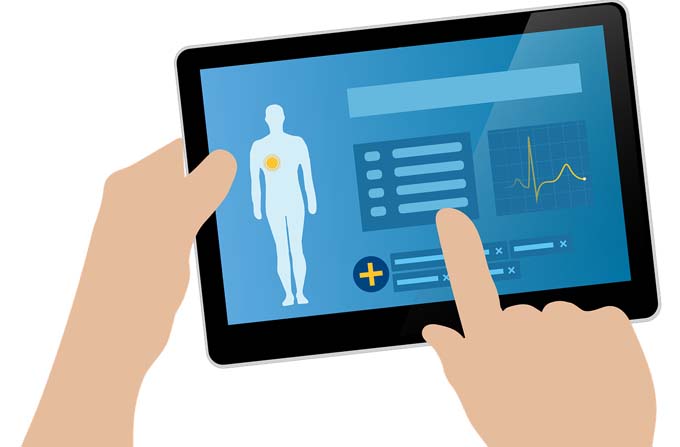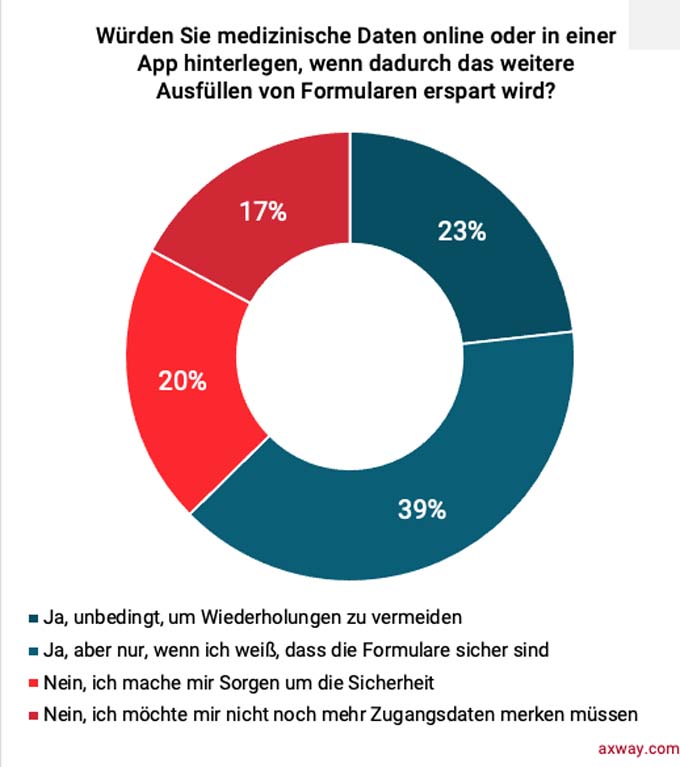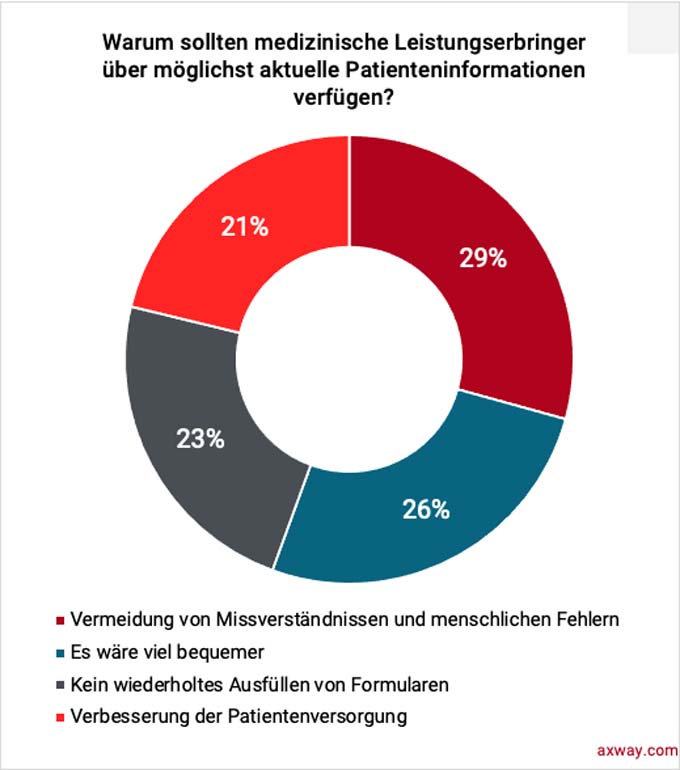Study: Data exchange between healthcare institutions welcomed by patients
In Switzerland, discussions about the electronic patient dossier continue, while the Federal Office of Public Health (FOPH) continues to identify deficits in the digitization of processes: Almost all illnesses still have to be reported in analog form, as was reported in various media. The FOPH's reasoning: by reporting by telephone or fax [...]

74 percent of patients welcome data sharing
This is contrasted by the rapidly advancing developments in telemedicine. An initial consultation via an online medical platform can make many doctor's visits superfluous and means a reduction in the burden on the healthcare system. But what should happen to the data collected during a consultation with an online doctor? In Germany, Axway, a provider of API management solutions, surveyed 1,000 patients to find out how they view the possibilities of telemedicine. The opinions revealed a tension between a convenient service experience, data security and control over one's own patient data.
Hope for process optimization and increased convenience
Sixty-five percent want medical providers to always have access to the patient's current treatment status. For the following reasons:- 29 percent: It could reduce misunderstandings and human errors.
- 26 percent: It would be significantly more convenient.
- 23 percent: It could save repeated filling out of forms.
- 21 percent: It could improve treatment.
Data security and control is the biggest concern
For the majority of patients, the security of their data is the biggest concern in connection with telemedicine. 51 percent assume that health data is not safe from hackers, only 22 percent were of the opposite opinion. Twenty-six percent said they were unsure and could not make a definitive statement. On the other hand, when asked if patients would pay for an app that provides secure access to their immunization record and comparable medical data, two-thirds - 66 percent - answered "no." Uncertainty and lack of transparency also seem to be factors that concern patients: 72 percent of respondents would like to have more control over who can access their patient records.
Data exchange yes, but only if it is secure
„Patienten in Deutschland bewegen sich in einem Spannungsfeld aus dem gewohnten Komfort digitaler Services, Datensicherheit und Kontrolle,“ kommentiert Yves Lajouanie, SVP und General Manager EMEA bei Axway, die Ergebnisse. „Das Stimmungsbild der Umfrage spiegelt auch einen internationalen Trend im Markt für telemedizinische Anwendungen wider: Big Tech- und Big Retail-Akteure wie beispielsweise Amazon versuchen derzeit durch das Akquirieren medizinischer Services die komfortable Erfahrung, die ihre Kunden von ihnen gewöhnt sind, auf den Gesundheits- und medizinischen Bereich auszudehnen und sie weiter an ihre Plattformen zu binden. Das Gesundheitswesen läuft Gefahr, die Datenhoheit an private Anbieter zu verlieren. Für Gesundheitseinrichtungen ist es daher wichtig, ihre digitalen Ökosysteme so zu gestalten, dass sie die Übertragung von Patientendaten in und den Empfang aus anderen Systemen und Anwendungen einfach gemäss allgemein gültiger Sicherheitsstandards vollziehen können. Auf diese Weise kann es ihnen gelingen, ihren Patienten einen Mehrwert und eine erfüllende digitale Serviceerfahrung zu bieten.“ Diese Einschätzungen aus Deutschland können zu einem wesentlichen Teil auch auf die Schweiz übertragen werden. Denn auch hier sind Datensicherheit und Kontrollmöglichkeiten beim Datenaustausch jene Faktoren, die über Sein oder Nichtsein eines elektronische Patientendossiers entscheiden. Source: AxwayThis article originally appeared on m-q.ch - https://www.m-q.ch/de/studie-datenaustausch-zwischen-gesundheitseinrichtungen-wird-von-patienten-begruesst/









